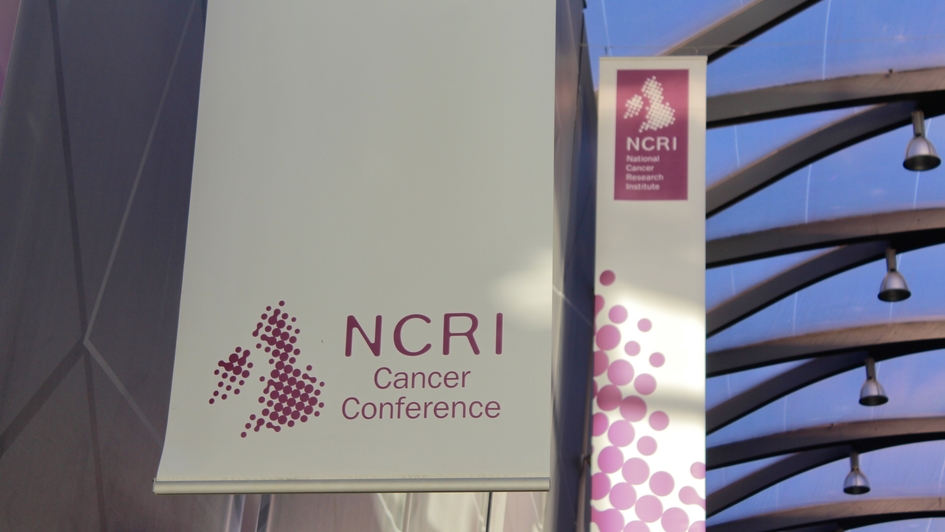
It’s November, which means it’s time for scientists, staff and students from the Institute of Cancer Research, London, to make their way to the National Cancer Research Institute (NCRI) Cancer Conference, one of the most important events in the UK's cancer research calendar.
Each year, thousands of doctors and scientists head to Liverpool to hear about the latest research and to connect with their colleagues from across the UK and further afield.
And, as ever, there is a busy schedule of seminars, poster presentations and workshops across a variety of topics – with many featuring scientists from the ICR.
Collaboration is key to defeating cancer
The conference began with a warm welcome from Dr Karen Kennedy, the Director of the NCRI – including a special thanks to the scientific organising committee, which this year was led by the ICR’s Professor Johann de Bono.
Dr Kennedy’s speech emphasised the importance of collaboration, something that we are well aware of at the ICR, given our long relationship with The Royal Marsden NHS Foundation Trust, our work in Team Science, and our partnerships with other institutions, such as the Cancer Research Centre of Excellence, run in partnership with Imperial College London.
We also work very closely with our funders, particularly Cancer Research UK and Breast Cancer Now.
We know, and Dr Kennedy emphasised, that we cannot defeat cancer by ourselves – instead, by working in partnership, we can make advances against the disease more quickly.
Stay up to date with all our news, blog posts and video content from the NCRI conference 2017 in Liverpool.
Read more
Cutting-edge research from across the world
Following Dr Kennedy were a number of talks that showcased some of the cutting-edge research being discussed here in Liverpool.
First to speak was Dr Matthew Ellis, Director of the Lester and Sue Smith Breast Center in Houston, Texas, and a University of London alumnus.
Dr Ellis is part of the NIH-funded Clinical Proteomic Tumor Analysis Consortium, which is looking to better understand cancer by analysing not just the genes involved but also the proteins produced by cancerous cells.
With this work, Dr Ellis hopes to be able to find more targets for future cancer drugs – highlighting the benefits of new taking approaches to solving old problems.
Up next was Dr Pasi Jänne, Director of the Lowe Center for Thoracic Oncology at the Dana-Farber Cancer Institute in Boston, Massachusetts.
His talk focused on tackling treatment-resistant lung cancers – specifically, using an existing drug, osimertinib, in a new way. Osimertinib is currently used for locally advanced non-small cell lung cancers, after patients have developed mutations to other drugs.
However, trials have begun to show benefit in using it sooner in treatment, alongside the initial EGFR inhibitors – hitting cancer with a double whammy, making it harder for the disease to become resistant to both drugs at once.
Finally, Dr Bin Tean Teh, Deputy Director of Research at the National Cancer Centre of Singapore, talked about two areas of research that show the importance of a worldwide approach to tackling cancer.
Giving the example of breast fibroepithelial tumours, Dr Teh showed how the disease is around six or seven times more common in Asian populations than Western populations.
He followed this with research into a herbal remedy, derived from plants in the birthwort family, that is commonly used in Taiwan, but is actually a potent carcinogen, causing more mutations than tobacco.
Cancer patients who have used the remedy in the past tend to have a signature genetic mutation that sets them apart from other patients – something that would need to be taken into account when developing a treatment.
Both areas might be overlooked in a Western-dominated research community, but affect millions of people across Asia, highlighting that cancer is a global problem that needs a similarly global approach to solve it.
More to come
This is just a selection of what happened on the opening day – there will be much more happening throughout the conference, with ICR researchers involved across the four-day event.
Tomorrow, for example, our scientists are hosting and speaking at sessions on topics from Big Data to theranostics.
If you’d like to follow the conference, and find out how our researchers are getting involved, keep an eye on our blog and follow @ICR_London and #NCRI2017 on Twitter for all the latest information.
More ICR updates from NCRI 2017
comments powered by